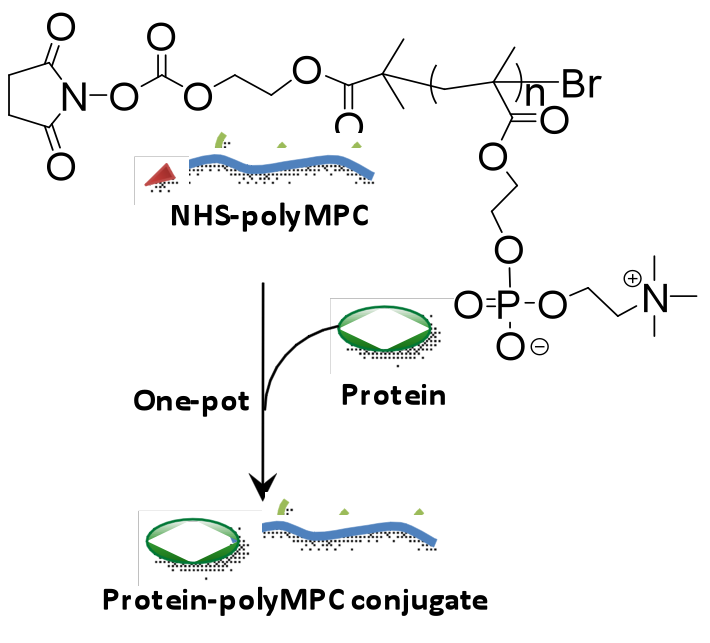Water soluble polymers, once reserved for commodity
applications (i.e., shaving cream, emulsification processes, etc.) have emerged
as valuable materials for medicine.
Combining synthetic polymers with therapeutic proteins and cancer drugs
improves the “therapeutic index” of the drugs, preventing their fast
elimination from the body, and improving their availability for treating the
disease. Emrick at the UMass
Materials Research Science and Engineering Center found that ionic liquids
provide an excellent environment for the attachment of proteins to synthetic
polymers. Water soluble polymers
like “polyMPC” shown in the figure
are of interest for conjugation to proteins for medicine. However, the conjugation reaction
itself is problematic when performed in water, due to loss of the reactive
end-group to hydrolysis. Ionic
liquids provide an alternative medium for this conjugation, as the polar but
aqueous-free characteristics of ionic liquids prevent competition of water for
the reactive site at the polymer-chain-end, leading to clean, efficient
conjugation. Such efficient and
convenient bioconjugation strategies are
critically important for scale-up and optimization of new polymer-based
conjugates for medicine.
